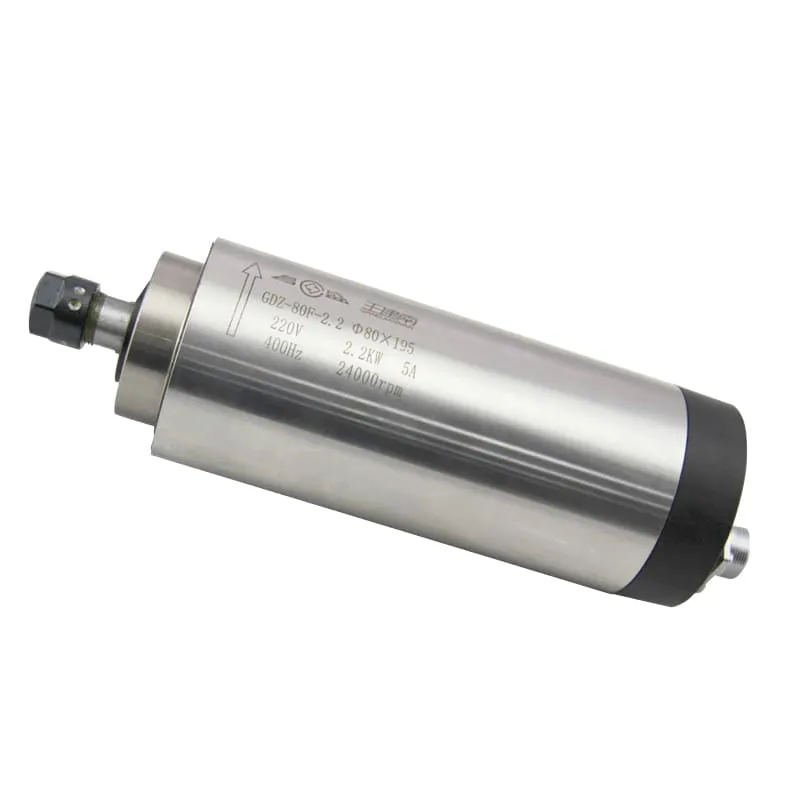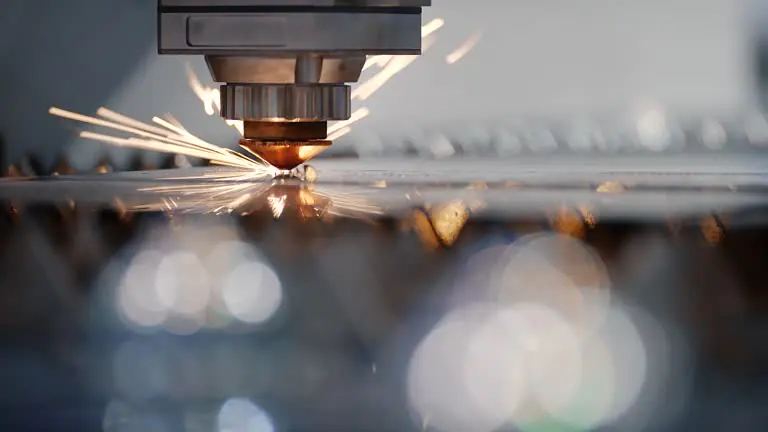How Do I Become a CNC Machinist?
Becoming a CNC (Computer Numerical Control) machinist can be a rewarding career path in the manufacturing industry. This comprehensive guide will explore the steps, skills, and knowledge required to become a successful CNC machinist, as well as the career outlook and potential growth opportunities in this field.
Understanding the Role of a CNC Machinist
A CNC machinist operates computer-controlled machinery to produce precision parts and components. Key responsibilities include:
- Programming CNC machines
- Setting up and operating CNC equipment
- Interpreting technical drawings and specifications
- Ensuring quality control
- Troubleshooting machine issues

A CNC machinist operating a CNC machine
Steps to Become a CNC Machinist
1. Educational Foundation
Start by acquiring a strong educational background:
- High school diploma or equivalent
- Focus on math, physics, and computer science courses
- Consider vocational programs in machining or manufacturing
2. Post-Secondary Education
While not always required, further education can be beneficial:
- Associate’s degree in machining technology
- Certificates in CNC programming and operation
- Technical school programs in manufacturing technology
3. Develop Essential Skills
Key skills for CNC machinists include:
- Mathematical aptitude
- Attention to detail
- Problem-solving abilities
- Computer literacy
- Mechanical aptitude
- Communication skills
4. Gain Hands-On Experience
Practical experience is crucial:
- Apprenticeships
- Entry-level positions in machine shops
- Internships in manufacturing facilities
5. Obtain Certifications
Industry certifications can enhance your credentials:
- NIMS (National Institute for Metalworking Skills) certifications
- MSSC (Manufacturing Skill Standards Council) certifications
- Manufacturer-specific certifications (e.g., Haas, Fanuc)
6. Specialize in CNC Technology
Focus on CNC-specific skills:
- Learn G-code and M-code programming
- Familiarize yourself with CAD/CAM software
- Understand different types of CNC machines (mills, lathes, routers)
7. Continuous Learning
Stay updated with industry advancements:
- Attend workshops and seminars
- Join professional organizations
- Subscribe to industry publications
Essential Knowledge for CNC Machinists
1. CNC Machine Types
Understand various CNC machines:
- Mills
- Lathes
- Routers
- Multi-axis machines
2. Programming Languages
Master CNC programming languages:
- G-code (primary language for CNC)
- Conversational programming
- Macro programming
3. CAD/CAM Software
Familiarize yourself with design and manufacturing software:
- AutoCAD
- Fusion 360
- Mastercam
- SolidWorks
4. Metrology
Learn about precision measurement techniques:
- Use of calipers, micrometers, and gauges
- Understanding geometric dimensioning and tolerancing (GD&T)
5. Material Science
Gain knowledge about various materials:
- Metals (steel, aluminum, titanium)
- Plastics
- Composites
Career Progression for CNC Machinists
As you gain experience, several career paths open up:
- CNC Programmer: Focus on creating and optimizing CNC programs
- CNC Setup Technician: Specialize in machine setup and tooling
- Quality Control Inspector: Ensure parts meet specifications
- Production Manager: Oversee manufacturing operations
- CNC Instructor: Train new machinists in educational settings
Industry Trends Affecting CNC Machinists
Stay aware of emerging trends:
- Automation: Integration of robotics in manufacturing
- Multi-Axis Machining: Increased use of 5-axis and 7-axis machines
- Additive Manufacturing: Combining CNC with 3D printing technologies
- Industry 4.0: IoT and data-driven manufacturing processes
- Sustainable Manufacturing: Focus on eco-friendly practices
Challenges and Rewards of Being a CNC Machinist
Challenges:
- Continuous learning to keep up with technology
- Precision work requiring high attention to detail
- Potential for long or irregular hours in production environments
- Physical demands of operating machinery
Rewards:
- Satisfaction of creating tangible products
- Opportunities for problem-solving and creativity
- Stable career in a growing industry
- Potential for good salary and benefits
Salary and Job Outlook
The salary for CNC machinists can vary based on experience, location, and industry:
- Entry-level: $30,000 – $40,000 per year
- Experienced: $50,000 – $70,000 per year
- Highly skilled specialists: $70,000+ per year
Job outlook is generally positive, with steady demand for skilled CNC machinists in manufacturing industries.
Tips for Success as a CNC Machinist
- Develop a Problem-Solving Mindset: Be prepared to troubleshoot and optimize processes.
- Embrace Technology: Stay current with the latest CNC technologies and software.
- Prioritize Safety: Always follow safety protocols and best practices.
- Cultivate Attention to Detail: Precision is crucial in CNC machining.
- Communication Skills: Effectively communicate with team members and supervisors.
- Time Management: Balance multiple projects and deadlines efficiently.
Specializations Within CNC Machining
Consider specializing in specific areas:
- Aerospace Machining: Focus on high-precision parts for aircraft and spacecraft.
- Medical Device Manufacturing: Create components for medical equipment and implants.
- Mold Making: Specialize in creating molds for injection molding processes.
- Prototype Development: Work on creating prototypes for new product designs.
- Large-Scale Machining: Operate large CNC machines for industrial components.
The Role of Technology in CNC Machining
Stay informed about technological advancements:
- Simulation Software: Use virtual environments to test programs before actual machining.
- Machine Monitoring Systems: Implement systems for real-time performance tracking.
- Advanced Tooling: Familiarize yourself with new cutting tool technologies.
- Artificial Intelligence: Understand how AI is being integrated into CNC processes.
Networking and Professional Development
Build your professional network:
- Join industry associations (e.g., SME – Society of Manufacturing Engineers)
- Attend trade shows and conferences
- Participate in online forums and communities for CNC machinists
- Consider mentorship opportunities, both as a mentee and eventually as a mentor
FAQ
1. How long does it take to become a CNC machinist?
The time can vary, but typically it takes 1-2 years of training and entry-level experience to become proficient. Mastery can take several more years.
2. Do I need a college degree to become a CNC machinist?
While a degree is not always required, an associate’s degree or technical certification can be beneficial and may lead to faster career advancement.
3. What’s the difference between a CNC machinist and a CNC operator?
CNC machinists typically have more in-depth knowledge of programming and setup, while operators may focus more on running pre-programmed machines.
4. Is physical strength important for CNC machinists?
While modern CNC machines do much of the heavy work, physical stamina and the ability to lift moderate weights are still important for tasks like material handling and machine maintenance.
5. Can CNC machining skills transfer to other industries?
Yes, the skills learned as a CNC machinist can be valuable in fields such as robotics, automation, quality control, and even computer programming.
6. How important is math for CNC machinists?
Math skills, particularly geometry and trigonometry, are very important for understanding part designs, programming toolpaths, and interpreting measurements.
Conclusion
Becoming a CNC machinist offers a pathway to a challenging and rewarding career in modern manufacturing. The journey requires a combination of technical knowledge, hands-on skills, and a commitment to continuous learning. As manufacturing technologies continue to evolve, CNC machinists play a crucial role in bridging the gap between design concepts and physical products.
The field of CNC machining is dynamic, offering opportunities for specialization and advancement. Whether you’re fascinated by the precision of aerospace components, the intricacy of medical devices, or the scale of industrial machinery, there’s a niche within CNC machining that can align with your interests and skills.
As you embark on this career path, remember that success as a CNC machinist goes beyond technical proficiency. Developing strong problem-solving skills, attention to detail, and the ability to work effectively in a team environment are equally important. The manufacturing industry values professionals who can not only operate machines but also contribute to process improvements and innovation.
The future of CNC machining is bright, with emerging technologies like AI, IoT, and additive manufacturing opening up new possibilities. By staying curious, adaptable, and committed to excellence, you can position yourself for a successful and fulfilling career in this essential field.
Whether you’re just starting out or looking to advance your existing skills, the world of CNC machining offers a wealth of opportunities for those willing to invest in their education and embrace the challenges of modern manufacturing. With dedication and the right approach, you can build a career that is both technically rewarding and financially stable, contributing to the creation of products that shape our world.

